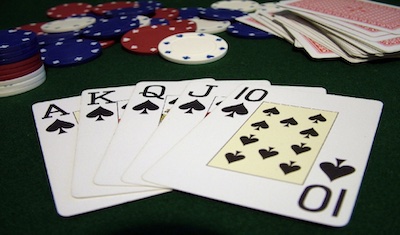Human fascination with games of chance spans across every civilization and continent, creating a rich tapestry of cultural traditions that reflect deeper social values and beliefs. While modern entertainment includes digital platforms like nv online casino, understanding traditional gaming customs provides valuable insights into how different societies have approached risk, luck, and community celebration throughout history.
Cultural gambling traditions serve multiple functions beyond simple entertainment, often playing important roles in religious ceremonies, seasonal celebrations, and social bonding. These practices reveal how different cultures have understood concepts of fate, fortune, and community interaction through formalized games and rituals.
Regional Festivals and Seasonal Gaming Celebrations
Traditional gaming festivals across cultures often coincide with seasonal changes, harvest celebrations, or religious observances. These events demonstrate how communities have used structured gaming activities to mark important calendar moments and strengthen social bonds during significant transitions.
Indian Diwali celebrations traditionally include card games and dice activities that families play together as part of religious observance. These practices serve social functions by bringing generations together while maintaining cultural continuity through shared activities that connect modern celebrations with ancient traditions.
European harvest festivals historically featured various gaming activities that celebrated community abundance and provided entertainment during seasonal gatherings. These events strengthened village bonds while offering structured ways to distribute seasonal surpluses through communal activities that benefited entire communities.
| Culture | Traditional Game | Cultural Purpose | Modern Influence |
|---|---|---|---|
| Chinese | Mahjong | Social bonding, strategy | Worldwide popularity |
| Indian | Pachisi | Family entertainment | Board game evolution |
| Mesoamerican | Ball Game | Religious ceremony | Sports development |
| European | Card Games | Social interaction | Modern card traditions |
These examples illustrate how traditional games served multiple ethnic functions beyond entertainment. The enduring influence of these practices demonstrates their importance in human social development and community building.
Indigenous Cultures and Sacred Gaming Rituals
Indigenous communities worldwide developed sophisticated gaming traditions that often carried spiritual significance and served important social functions within tribal structures. These practices typically emphasized community welfare over individual gain, reflecting different local values around competition and sharing.
Native American tribes created various games that served educational purposes, teaching young people about strategy, patience, and community values. The traditional game of bones or stick games often accompanied storytelling sessions that preserved cultural knowledge while providing structured entertainment for community gatherings.
Australian Aboriginal cultures developed complex gaming traditions connected to dreamtime stories and seasonal celebrations. These activities often involved entire communities and served to reinforce cultural knowledge, social relationships, and spiritual connections to the land through structured communal activities.
Asian Philosophical Approaches to Games of Chance
Eastern gaming philosophy often emphasizes balance, harmony, and the acceptance of changing fortune as natural life elements. These cultural approaches provide different perspectives on risk and uncertainty compared to Western attitudes toward chance-based activities.
Japanese gaming traditions historically incorporated concepts of honor, respect, and social harmony into game rules and etiquette. Traditional games like Hanafuda cards combine artistic beauty with strategic thinking, reflecting cultural values that emphasize aesthetic appreciation alongside competitive elements.
Korean traditional games often emphasize family participation and seasonal celebration, with activities designed to include multiple generations in shared entertainment. These practices demonstrate how gaming traditions can strengthen family bonds while preserving cultural knowledge through intergenerational participation.
Key functions of traditional cultural gaming:
- Community bonding through shared activities that bring people together across social divisions
- Local preservation by maintaining traditional knowledge and practices through
interactive engagement - Educational purposes teaching strategy, mathematics, and social skills through
structured play - Seasonal celebration marking important calendar events and transitions with special
activities - Spiritual connection linking gaming activities to religious beliefs and cultural worldviews
These functions reveal how traditional gaming served important social purposes beyond entertainment. Understanding these roles helps contextualize gaming activities within broader cultural frameworks rather than viewing them in isolation.
Modern Preservation of Traditional Gaming Culture
Contemporary efforts to preserve traditional gaming cultures focus on documenting, teaching, and adapting these practices for modern contexts while maintaining their cultural significance. Museums, ethnic centers, and educational institutions work to ensure these traditions continue serving positive community functions.
Digital platforms now help preserve and share traditional games with global audiences, allowing cultural exchange and learning opportunities that weren’t previously possible. These technological applications demonstrate how modern tools can support traditional culture preservation rather than replacing meaningful ethnic practices.
Community festivals and cultural events increasingly feature traditional gaming activities as ways to engage younger generations with cultural heritage while providing entertainment that connects them to ancestral traditions. These events serve educational purposes while maintaining the social bonding functions that made these practices culturally important.
Modern applications of traditional gaming wisdom:
- Educational programs using traditional games to teach cultural history and values in schools
- Community events featuring traditional gaming activities to strengthen neighborhood connections
- Therapeutic applications using traditional games for cognitive development and social interaction
- Cultural exchange programs sharing traditional games between different communities and nations
- Family activities adapting traditional games for modern family bonding and entertainment
These contemporary applications demonstrate the enduring value of traditional gaming wisdom. By understanding the positive ethnic functions these practices served, modern communities can adapt these insights for current social needs.
Celebrate Cultural Heritage Through Understanding Traditional Games
Cultural gambling traditions offer valuable insights into human social development, community building, and the positive roles that structured chance-based activities can play in healthy societies. These practices demonstrate how different cultures have channeled gaming activities toward beneficial social purposes including education, celebration, and community bonding.
Understanding these traditions helps us appreciate the rich folk heritage surrounding gaming activities while recognizing the importance of maintaining the positive social functions that made these practices meaningful to communities throughout history. This knowledge can inform modern approaches to gaming that emphasize ethnic enrichment and social connection over purely individual entertainment.

